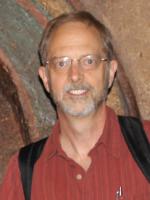
Professor of Chemical and Materials Engineering - University of Cincinnati, Cincinnati OH.
I teach Polymer Physics, and Materials Characterization. My research interests include scattering theory, disordered materials, flame synthesis of nano materials, worm-like micelles, polymer topology, and whatever else seems interesting with some industrial focus/interaction. Presently I am the director of NanoPower Africa, an AID funded $15M program to develop science education in sub-Saharan Africa (South Africa, Rwanda, Botswana, Ethiopia) and the coordinator of a solar panel assembly plant in Ethiopia. I annually take a group of undergraduates to Ethiopia to install solar power in villages near the Somali border.
I've been interested in the academic track since my undergraduate years. I never enjoyed having a boss but I like to work hard (and don't mind the low pay).
Before coming to PSE, I worked at the Patent Office in the polymer/biomedical area prior to graduate school and had taken night classes at the University of Maryland with Jack Hoffman, Ed Dimarzio and Charles Guttman. Advise from this group lead me to UMass and my choice of advisor. Also, when I mentioned UMass to other programs that I interviewed with I noticed the positive impression. Although I spent most of my youth in Rhode Island, I was familiar with the UMass area since I was born in Springfield.
Thinking back on my years in PSE, I remember that the seminars were great. PSE gave me a chance to learn how to learn, there was room for mistakes and a platform for success. I especially valued the qualifier experience. The student peer group was excellent, competitive but down to earth. There were close relationships that developed and which I still value and cultivate many decades later. The PSE degree is highly valued across academia. I enjoyed the progressive atmosphere of Amherst.
How did PSE prepare me for an academic career? Cons: There is no undergraduate counterpart to the degree so I didn't have much chance to TA or interact with undergraduate students. This created somewhat of a stumbling block on first entering academics. At most academic institutions you are expected to have a blend of undergraduate and graduate teaching. Pros: On the other hand, the qualifier based system in PSE prepares one for any contingency and makes graduates of the program extremely flexible, independent, and broad based. That translates into unconventional and rigorous teaching at all levels. I have found that interactions with undergraduates can be extremely rewarding, the growth of students in four/five years and seeing them blossom in their careers is enjoyable. Graduate students tend to already have formed approaches to problems so I am more taking advantage of the investment of their previous teachers. I learned at UMass that coupling industrial and fundamental approaches is the best approach for a technical education. It is vital to keep your feet on the ground and to be able to explain in simple concrete terms the importance of what you are doing.




